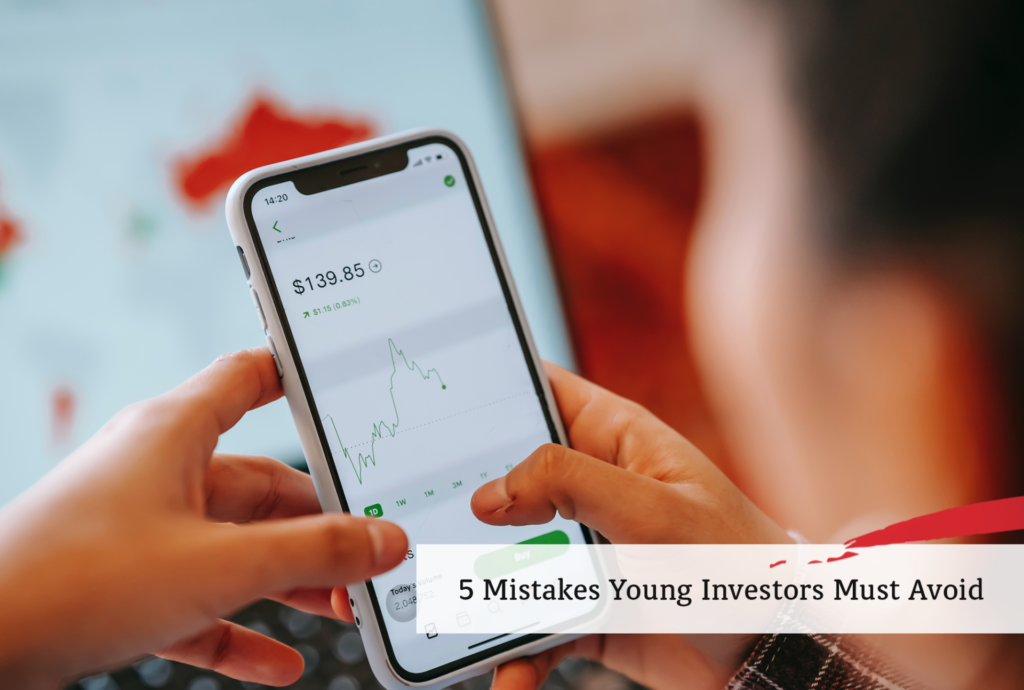Starting early in the world of investing provides numerous advantages, but it’s essential to steer clear of common pitfalls. Money-related missteps can have serious consequences, making it crucial for young investors to be aware of these mistakes and improve their chances of success.

Let’s explore five common errors and how to avoid them:
- Procrastination
Waiting to invest can hinder your long-term financial growth. The stock market, with its historical average annual return of about 10%, rewards early investment. Start investing as soon and as frequently as possible. Consider allocating a portion of your savings to buy index funds or ETFs regularly.
- Speculating Instead of Investing
As a young investor, you have the advantage of taking on more risk for potentially higher returns. However, this doesn’t mean gambling on speculative trades. Instead, focus on investing in companies with greater upside potential over the long term. Small-cap stocks, although riskier, can offer significant growth opportunities. Diversify your portfolio or consider investing in small-cap stock index funds.
- Using Excessive Leverage
Leverage can be tempting for young investors, given their ability to recover from losses through future income generation. However, excessive leverage can lead to catastrophic portfolio losses and discourage you from taking risks in the future. Consider using leverage in moderation, limiting it to a portion of your portfolio that you’re comfortable with.
- Not Asking Enough Questions
Asking the right questions is crucial in making informed investment decisions. Research and seek answers to understand the reasons behind market movements and asset values. Depending on your preferences, you can choose to work with a financial adviser (like us!), invest in index funds, or embark on self-directed research.
- Not Investing
Young investors often prioritise immediate spending over long-term goals like retirement. Failing to save and invest at a young age can lead to poor money habits and hinder wealth accumulation. Remember that investing early not only benefits your retirement plans but also enhances your quality of life long term.
In conclusion, young investors should leverage their age to take on calculated risks and lay the foundation for a larger portfolio in the future. Avoid speculative trading, focus on sound companies, and consider index funds for simplicity. Be cautious with leverage, ask the right questions, and start investing as early as possible to secure both present and future financial well-being.
By being mindful of these common mistakes, young investors can set themselves up for long-term financial success and enjoy the benefits of investing from an early age.

